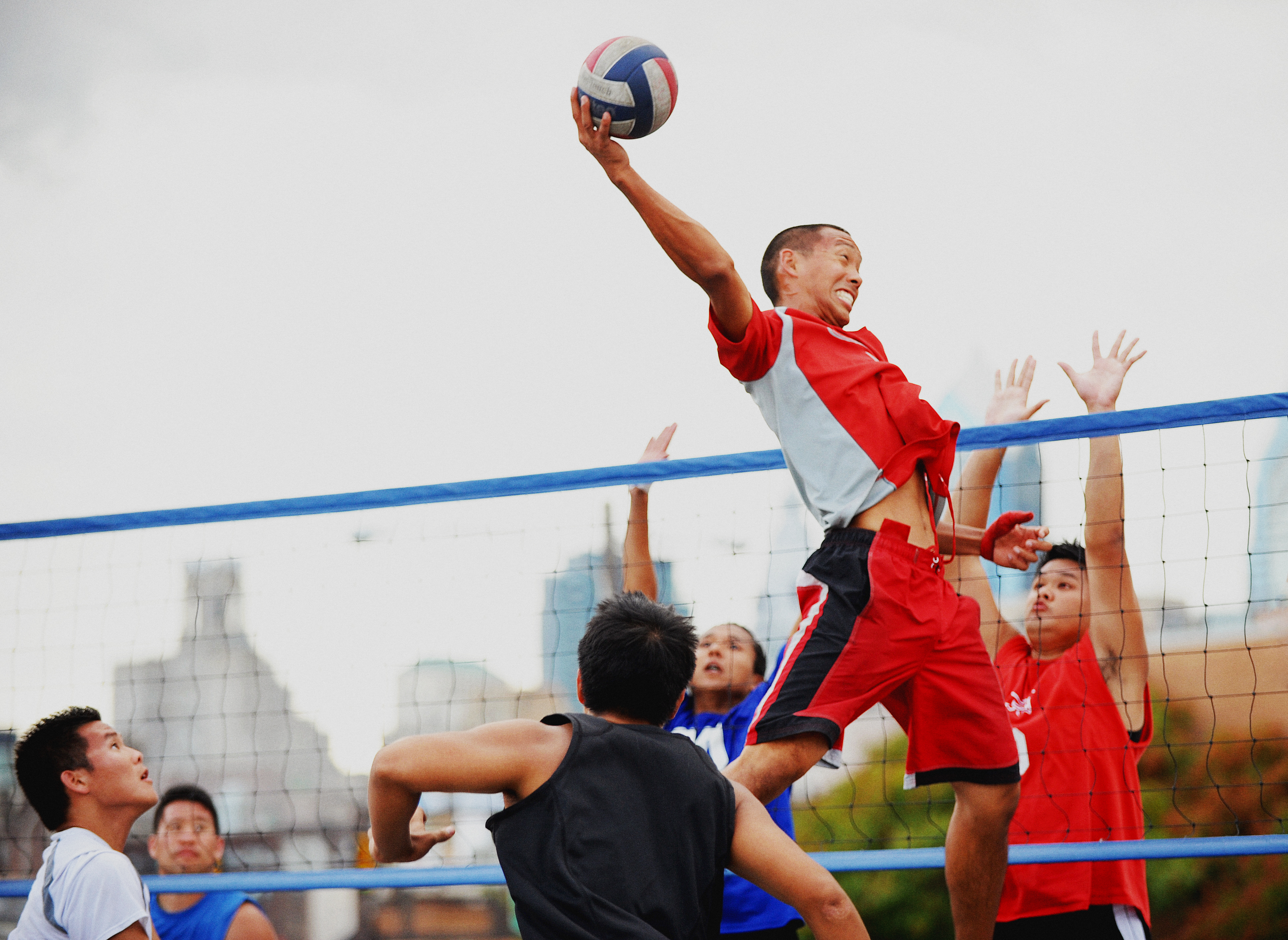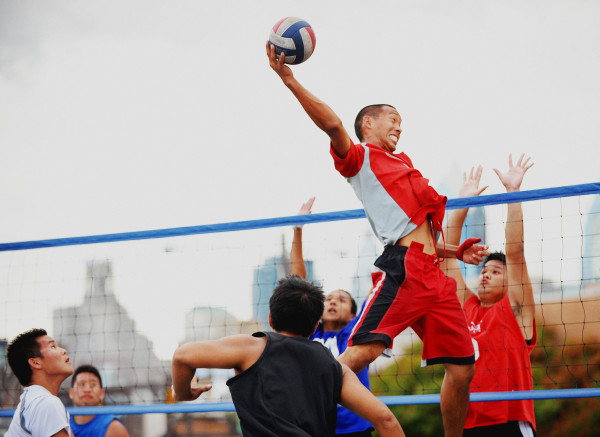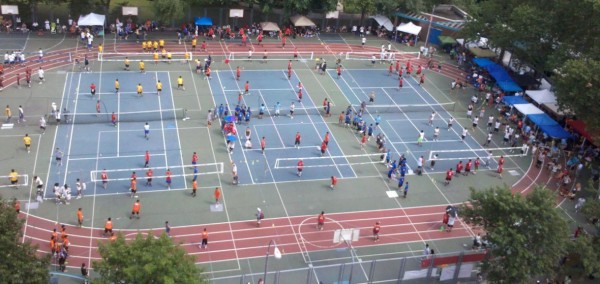Fans abound for the gritty, fast-paced, Chinatown-style street ball known as 9-man. In the 1930s, Chinese American men began playing 9-man, a street version of volleyball involving nine players (hence the game’s obvious if not well known name) compared to the six people playing on school and pro teams across the nation. It began as a game for laundry and restaurant workers in the streets and parking lots during an era when Chinese Americans were largely socially segregated from the rest of American society. The sport has roots in Toisan, China, where many early immigrants came from. Seeking a break from work, they created a community for themselves. Even as the Chinese American community expanded, nine-man remained popular and competitive. In the 1940s, Chinese Americans began organizing tournaments inviting teams from New York, Maryland, Los Angeles, Boston, Philadelphia, and many other cities. The tournaments provided a forum for connection of geographically dispersed Chinese American communities. And as the Chinese American community continues to evolve, nine-man teams unite players from urban and suburban neighborhoods — preserving a certain kind of Chinese American tradition.
Today, Seward Park in New York’s Manhattan Chinatown is the only court with nine-man regulation lines painted on. And old-hands continue to recruit younger players. In a recent New York Times article, long-time player Bob Lee explained nine-man’s appeal for both players and audience: “The offense is more explosive and there is a lot more action. It’s more exciting to watch.”
One can’t write about 9-man without discussing its energy, but also one of its notable rules: the controversial “content rule.” Established in 1991, the rule states that two-thirds of the players must be “100% Chinese descent” and one-third do not need to be 100% but must be able to prove some East Asian descent. Some say the ruling means that the game won’t be run-over by super athletes and will help maintain the 9-man community’s culture and history. Others say its straight-up racist. A big factor in evolving discussions over the rule include focus on the next generations of players, their interests, backgrounds, etc. Just recently a smaller tournament in Newton, Massachusetts, “the Boston Spike-Off,” ditched the content rule and allowed non-Asian players to join the games. For major 9-man tournaments, the rule continues to apply.
This weekend (July 19 and 20), the New York Mini goes down. Ursula Liang concisely explained the spirit: “The most competitive of the teams with players in their 20s and 30s will be battling for a trophy, and the more community-oriented clubs…will be combining competition with some serious hanging out.” Meanwhile, throngs will set up their portable chairs and watch games played on hot summer pavement.
If you have a chance to see a tournament match, practice game, or a chance to see Ursula Liang’s new (ish) documentary “9-Man,” I highly recommend it.
Photo Credits: Andrew Huynh and NY Mini
- Excited
- Fascinated
- Amused
- Disgusted
- Sad
- Angry










